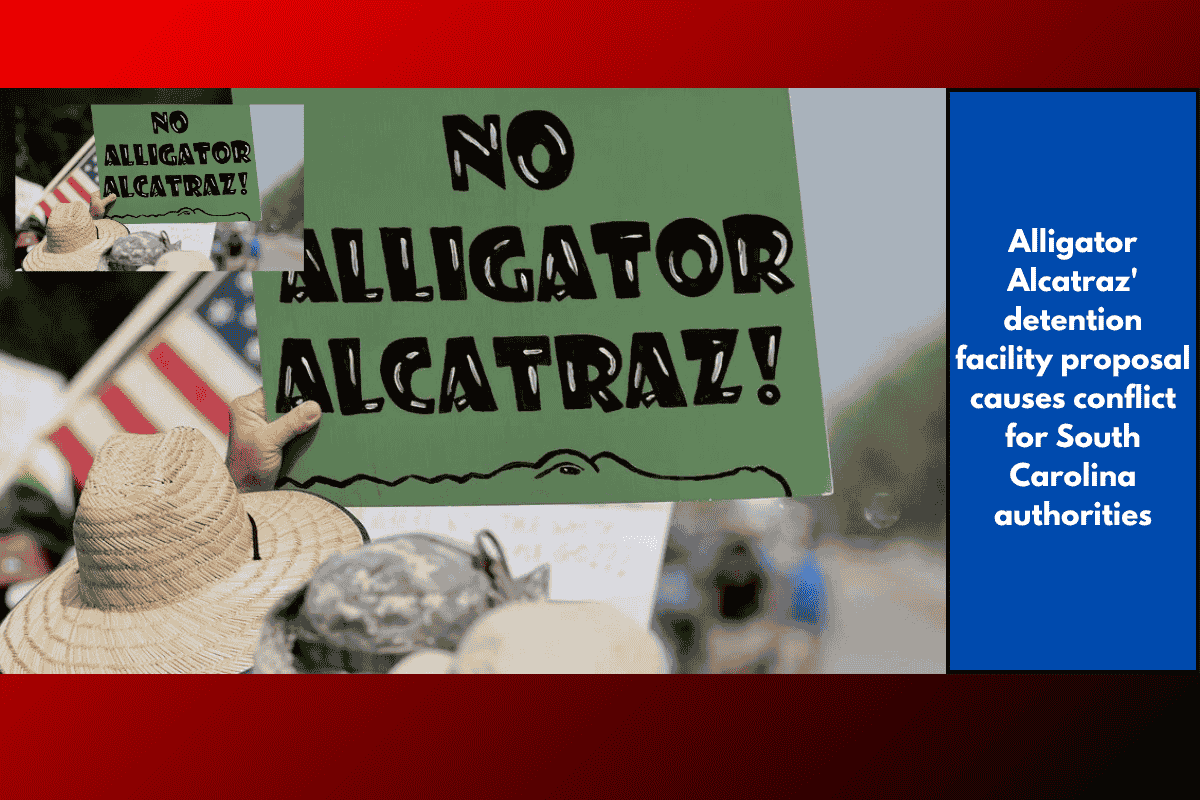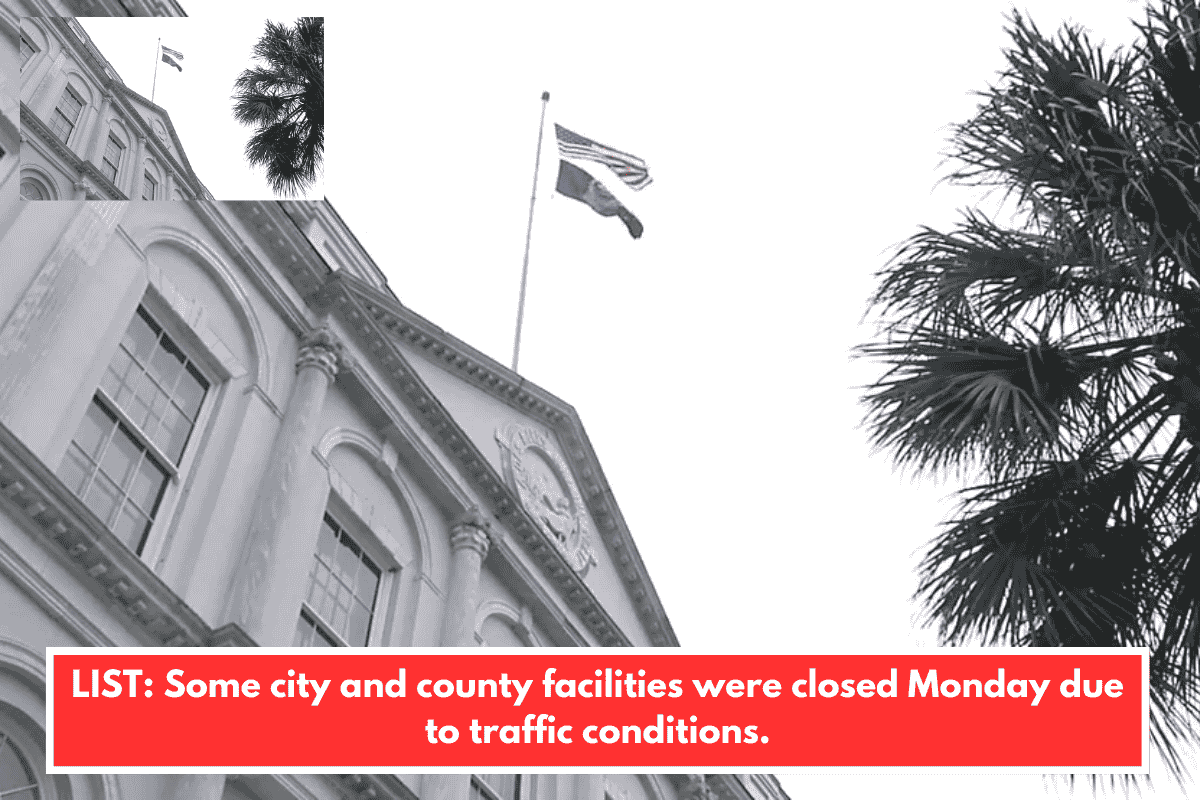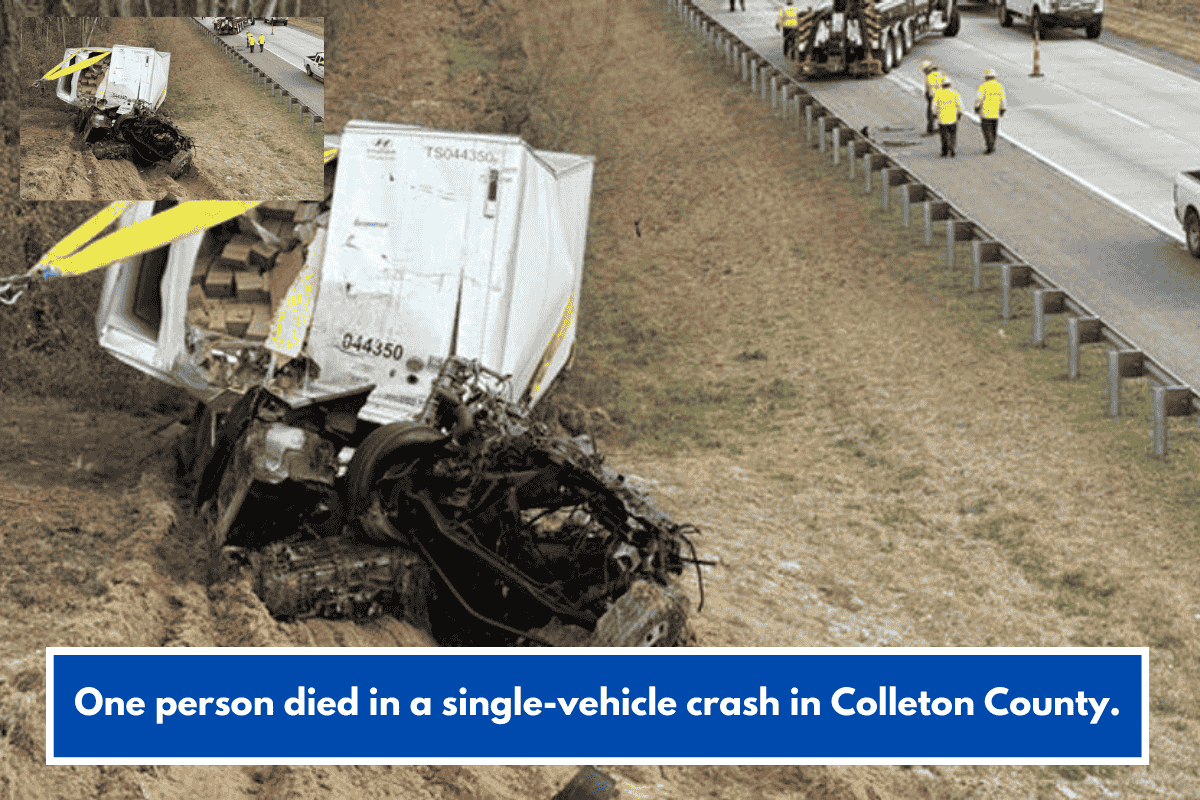In Charleston County, South Carolina, the debate over building an immigration detention center—modeled after Florida’s controversial “Alligator Alcatraz”—has sparked strong disagreements between state leaders, regardless of their political affiliation. While some Republicans are pushing forward with the proposal, both Democrats and some Republicans are raising concerns over the costs, ethics, and timing of such a project. The tension surrounding this proposal highlights the broader issues surrounding immigration enforcement in the state.
The Proposal and Republican Perspectives
The idea of building a detention center for immigrants, similar to Florida’s “Alligator Alcatraz,” has gained attention in South Carolina. The facility in Florida was notorious for its high costs, and some state Republicans, including Gov. Henry McMaster, are pushing to explore the possibility of bringing this controversial model to South Carolina. U.S. Rep. Nancy Mace and other state GOP leaders have shown support for the initiative, with Mace even posting on social media, stating that “South Carolina’s gators are ready,” in reference to the facility’s name.
However, Republican State Rep. Jordan Pace, who represents Berkeley County, has expressed hesitation. While Pace agrees that immigration enforcement is an issue, he is frustrated with the lack of progress on other immigration-related bills in the state. Pace also pointed out that the proposal to build the facility might be rushing ahead without fully considering other pressing legislative needs first. Additionally, he voiced concerns over the high cost of the Florida facility, which was funded by taxpayers and exceeded $450 million.
Democratic Opposition
Democratic leaders in South Carolina have strongly opposed the idea, arguing that such a facility would be both unnecessary and inhumane. Thomas Dixon, the chairman of the Charleston County Democrats, voiced his concerns, stating that as South Carolinians, the state should be better than such a proposal, regardless of political affiliation. He criticized the cost of building and maintaining such a facility, referencing Florida’s experience and the uncertainty around reimbursement from the federal government. Dixon argued that the funds could be better spent addressing other critical issues in the state, such as domestic violence, crime, healthcare, and education.
Dixon also warned that if such a facility were built in South Carolina, it would likely face significant opposition from the community, including protests. The American Civil Liberties Union of South Carolina (ACLU) has already launched a petition against the facility, which has gained over 11,000 signatures in just a few days.
Legal and Financial Concerns
Both Republican and Democratic leaders are concerned about the costs associated with the proposed immigration detention center. While some Republicans, like Rep. Pace, have expressed frustration with the lack of legislative action on immigration, they have also questioned the financial feasibility of such a facility. Pace highlighted the fact that the state has yet to pass any significant immigration-related bills and warned against focusing too heavily on a high-cost detention center without addressing more immediate needs.
Dixon, from the Democratic side, also pointed out that the state’s financial resources could be better allocated toward improving healthcare, education, and addressing poverty, rather than funding a controversial detention facility.
The debate over the proposed immigration detention facility in South Carolina is emblematic of the broader divide on immigration policy in the state. While some Republicans continue to push for the center as a solution to immigration issues, others—both Republican and Democratic—are questioning its necessity, cost, and potential impact on the community. With growing opposition from groups like the ACLU and local leaders, the future of the proposal remains uncertain, with protests and public outcry likely if it moves forward.










Build the holding facility!! Too much of the “welfare” money in South Carolina is being spent on illegals; has been for years. Use the “discovered” funds of a few years back to fund the construction of the facility.
Thank you for your feedback! I really appreciate you taking the time to point that out. You are absolutely right,